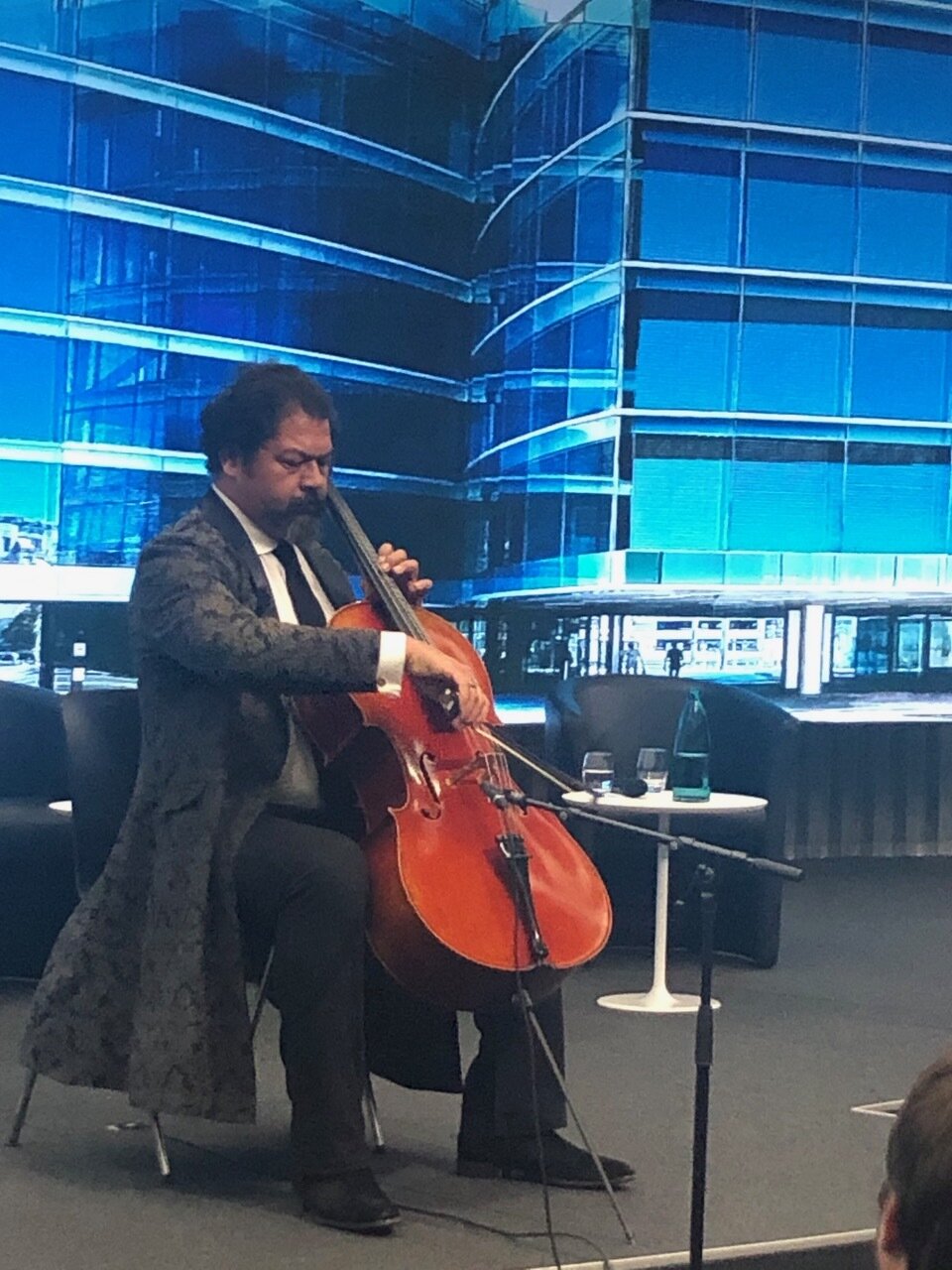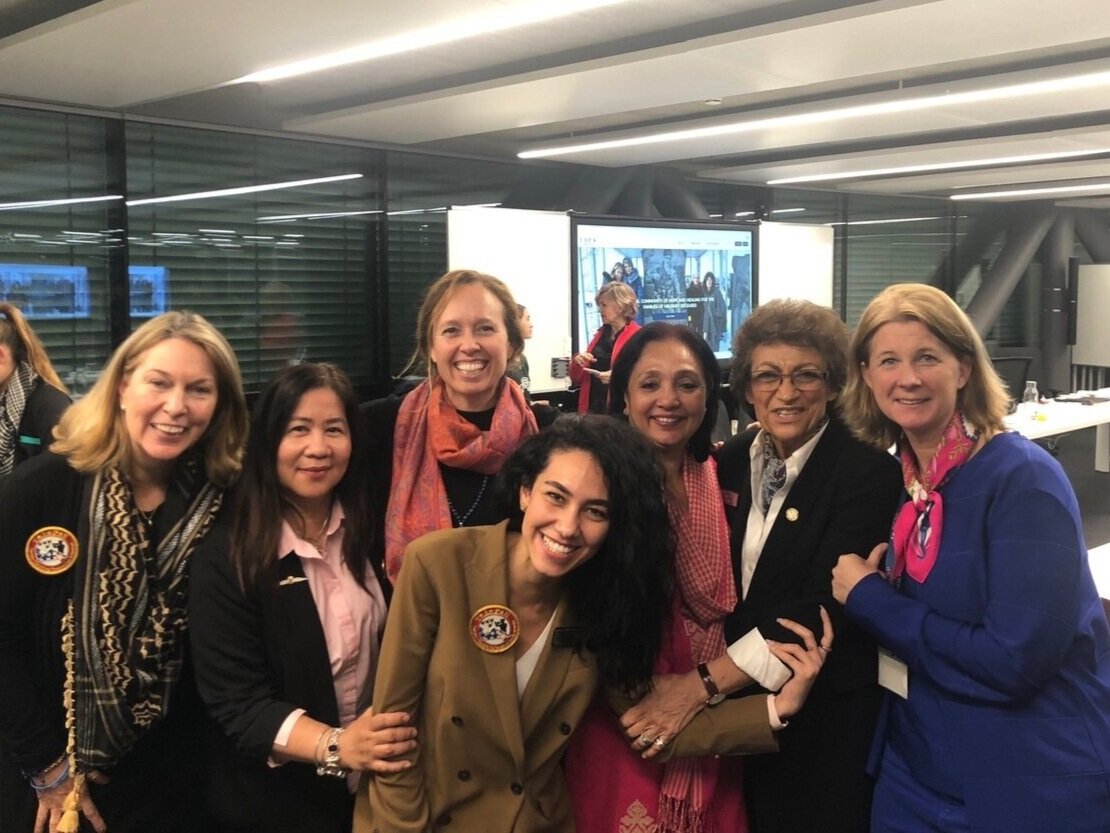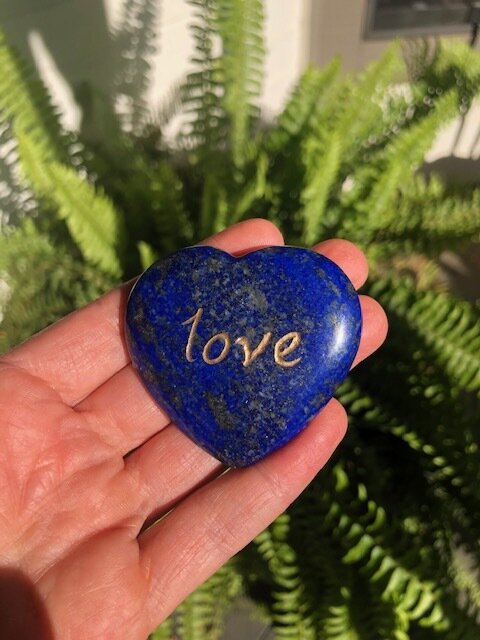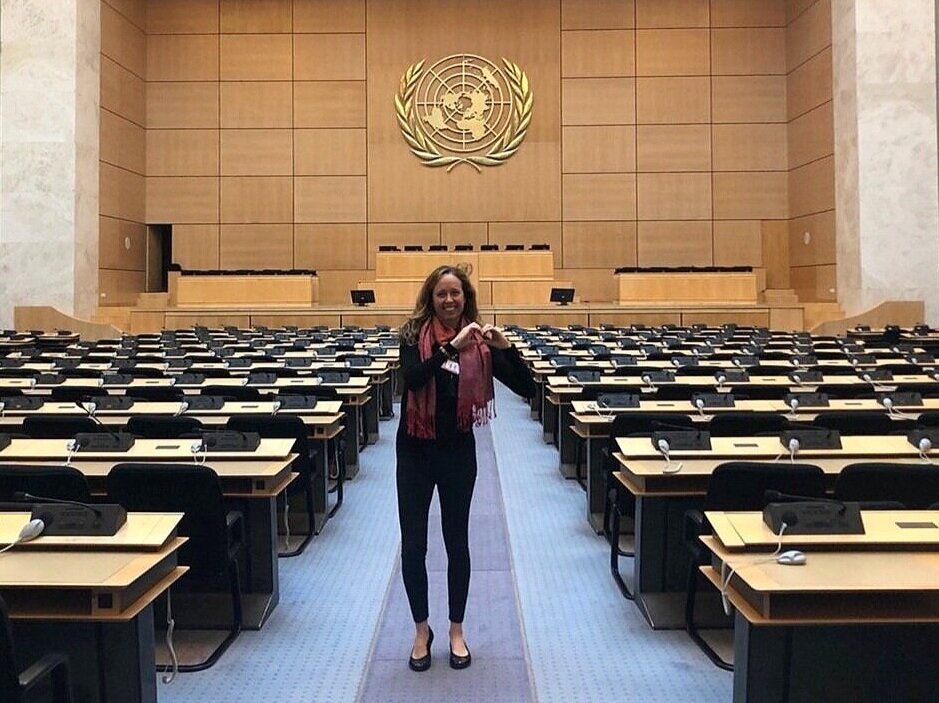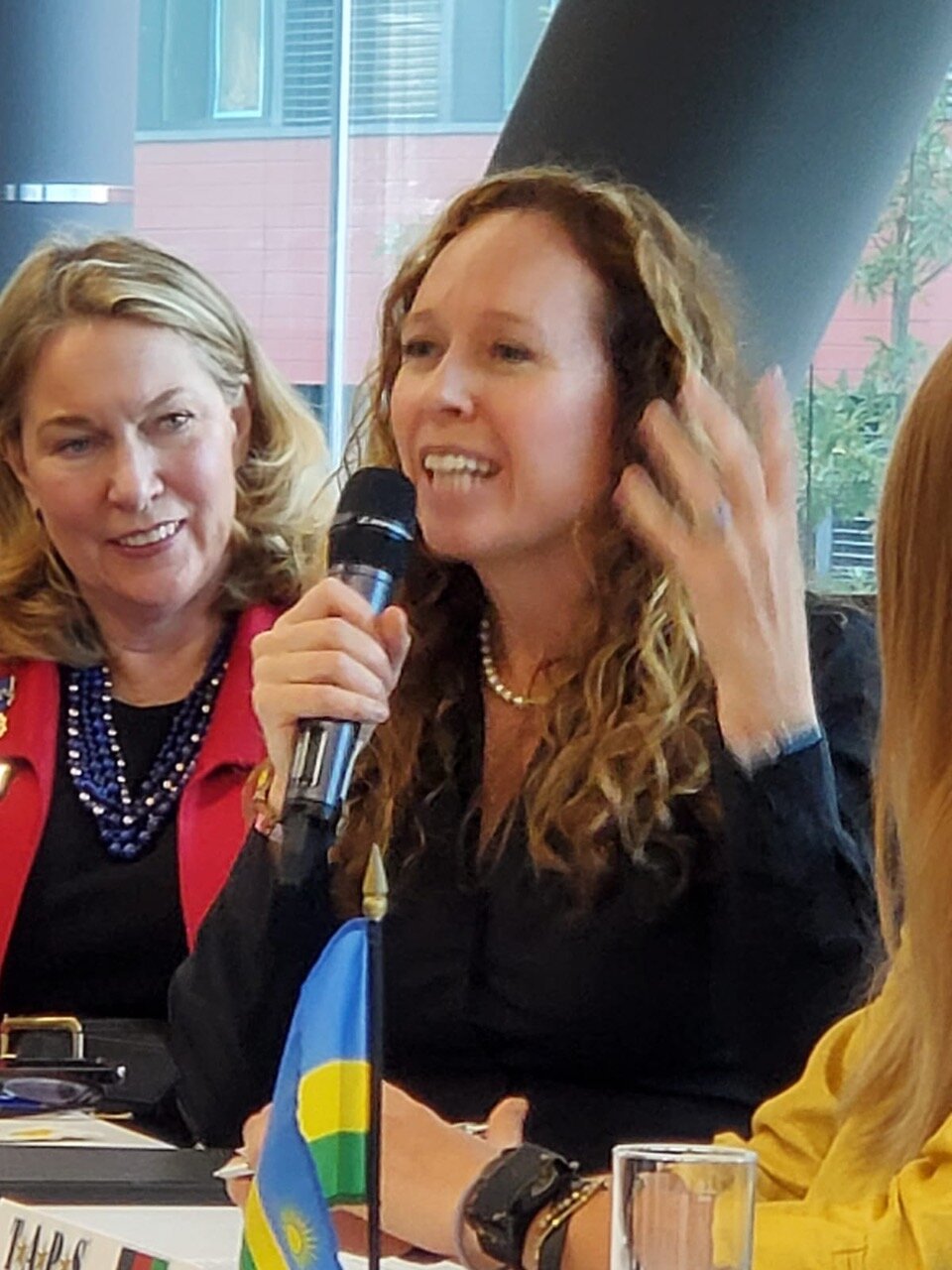Turning War Grief into Positive Peace: A Journey to Geneva with TAPS’ families of the military fallen from around the world
In the peacebuilding field, we talk a lot about transformation—personal transformation, conflict transformation, etc. And yet it was a humbling opportunity to meet women from around the world who have transformed their war-time grief from tremendous loss and suffering into something positive—positive peace. I participated in “Geneva Peace Week” as a member of a delegation from TAPS International, an organization caring for the families of the military fallen, founded by Bonnie Carroll, who lost her own husband, a brigadier general, in a tragic plane accident. At the time in the mid-90s, Bonnie was devastated and sought out a military grief support network, but there was none. She set out to start one herself and nurtured it to a comprehensive organization, which has assisted more than 90,000 surviving families. TAPS is now growing a global coalition of organizations who care for the families of the military fallen around the world. Her vision is huge…her heart, is even bigger. Within moments of meeting Bonnie, people are apt to shed tears, describing the pain they have endured from the loss of a loved one. The organization she founded shares the same ethic of compassion and care, welcoming each person in a warm embrace.
Geneva Peace Week was a packed week of presentations at the United Nations and Maison de la Paix (House of Peace) from an array of United Nations offices, government officials, think tanks, and NGOs. The TAPS session offered a unique angle—all women, sharing moving stories of turning war grief into positive peace. Our panelists were from Libya, Iraq, Rwanda, Afghanistan, Myanmar, and me. I had not lost multiple family members like they had, or my community or country. Perhaps I was speaking to show how even a tiny glimpse of war grief can transform the trajectory of one’s life. My fellow panelists shared the emotional, the personal side of war, the grief and suffering that it causes, the devastating effects on their communities, and yet, the courage they found from their broken hearts, and the commitment to serve others and a cause greater than themselves. I found myself reflecting on how it is that war grief is turned into positive peace, through the three “C’s”. First, we must choose life over death, peace over revenge or hatred. Second, we must have courage, which comes from broken hearts and deep love. The root word of courage is “Coeur”-heart, in French. Third, is the importance of community. Love cannot be kept to ourselves, but must be shared with others, and is the basis of connection and service to a larger community.
-----------------------
There were several highlights of the week, including meeting Mahatma Gandhi’s granddaughter, Ela Gandhi, founder of Gandhi Development Trust, who shared gems from Gandhi’s social change playbook.
Regarding the recent youth activism for climate change, Ela believes in order to be effective, climate change needed to be described more specifically in a way that affects everyone and then to make a concrete goal for the activism. For Gandhi’s India, everyone was affected by the salt tax, for example, and so the march/protest was specific and effective.
Satgraya -“truth- force” that comes when people really internalize non-violence; it allows them to face the guns with deep, inner strength. Non-violence requires far more courage than violence. Inner strength is needed—control over the mind and body. Gandhi prescribed daily prayers- an absolute commitment to non-violence, cheerfulness, non-stealing—taking more than you need; self discipline and control over the senses, sharing and generosity, equality in daily work which overcomes status and hierarchy, developing healthy eating habits, fearlessness at all times, respect for all faiths, investing in locally made products.
Imperative to love all people and beings. Gandhi loved all and also believed that all people could change. Satgraya was about helping to induce that change.
Suffering helps towards progress.
Victory is never achieved through defeating the other person.
Within a loving, caring environment, change can occur.
-----------------------
Given Euphrates’ connection to the United Religions Initiative, the largest grassroots interfaith network in the world, I took a special interest in a session on the role of religions in peace and conflict. Here are a few notes:
Globalization has actually meant growing intolerance. Religion is a powerful force and must play a role as we are seeing a rise of religious conflicts and religious fundamentalism. Religions have huge infrastructure, reach and have a responsibility. All have the ability to promote standards of forgiveness and humanization.
The developed world has lost the feeling of war—for example, the popularity of violent video games where kids are rewarded for killing. This trivializes violence and does not spread values of dignity and compassion.
The ecumenical group, the World Council of Churches has done a study on religion, conflict, and peace. Almost all religions have been implicated in violence. The worst thing that religions can do is pretend they have nothing to do with violence in their name. We should all be engaging in self-critical inquiry and discussion as to what it is that makes religion so susceptible to violence? If religions are not part of the solution, they will continue to be part of the problem.
Most are familiar with the “just war” doctrine; the World Council of Churches wants to replace it with “just peace.” WCC is appealing to governments to stop using religion as justification for violence.
The Pope has said, “Peace is a gift, a challenge, and a commitment.” There are new efforts on the educational front, recognizing the need for empowering education that teaches peace and the world’s interconnectedness. The Pope is convening a global gathering on May 14, 2020, and has released a paper, Reinventing Education.
“It is easier to find global agreement about an education that integrates and respects all aspects of the person, uniting studies and everyday life, teachers, students and their families, and civil society in its intellectual, scientific, artistic, athletic, political, business and charitable dimensions. An alliance, in other words, between the earth’s inhabitants and our “common home”, which we are bound to care for and respect. An alliance that generates peace, justice and hospitality among all peoples of the human family, as well as dialogue between religions.”
The World Council of Churches also released, Educating for Peace May, 2019.
-----------------------
Another highlight of the week was getting to know the fabulous Iraqi cellist and former maestro of the Iraqi National Symphony Orchestra, Karim Wasfi. Many have seen the viral video of him playing his cello at the site of a terrorist attack. I first heard of Karim’s work with the symphony more than ten years ago and have been deeply interested in the role music can play to combat extremism and promote peace, (and as a musician myself). Karim performed his creative and moving compositions during the opening ceremony. Later, we were able to catch up on Iraq and Zuhal Sultan, founder of the National Youth Orchestra of Iraq, and our Visionary of the Year in 2015.
-----------------------
Our last evening, we spent with the TAPS international working group, graciously hosted at the Geneva Centre for Security Policy, with the head of peacebuilding, Dr. Annika Hilding Norberg, participating, a key partner throughout the week. The task was “to elevate the voice of those who have paid the price for freedom.” Our basis was building upon the foundation that was begun during last year’s working group:
Be it known by all, we the families of those who have died in the cause of freedom, stand together in the light of justice against all those threatening the peace of our world. We unite with great purpose and with pride in our heroes’ selfless service. We pledge to continue as their living legacies in honor of their sacrifice to heal our hearts and raise future generations in peace, freedom, and stability. The families of our deceased military are hereby united as a global community interdependent upon one another. We commit to go beyond our borders, rise above political or religious differences, transcend language barriers and unite with one voice in hope and healing.
We recognize the need for a solid and sustained network of support and to maximize resources offered to all who are grieving the death of a military loved one. We stand together in our acknowledgment of the universality of grief, our respect for all who have served and died, and our dedication to peace. In honor of our fallen heroes, our military deceased, and our martyrs, we will raise our voices as one global community, representing the families of all those who have given their lives in the cause of freedom. For the support of this Declaration, we mutually pledge to each other our honor for those who have served and died and our care for their families.
Signed by the leaders of organizations around the world representing families of the military deceased, dedicated to ensuring peace and stability as the living legacy of service and sacrifice.
What a groundbreaking statement! More importantly, what a wonderful sense of deep interconnectedness and kinship that was felt amongst this global community. The incredible generosity of spirit and support for each other continued even to the next morning, when at 5am as I departed for the airport, Bonnie Carroll and Joseph Smith, Director of International Programs, were both there to hug me goodbye and ensure I got off safely. The sense of giving continued throughout the day, when due to a delayed flight from Geneva to London, I missed my flight from London to San Francisco. Two gentlemen from the Bay Area who missed it as well, lobbied hard to let me join them in the club lounge in the airport. We had a wonderful time getting to know each other and in one of their words, “that was the most enjoyable travel debacle I’ve ever had!” As I hold the blue lapiz heart inscribed with the word “Love” in my hand, made by women in Afghanistan through a TAPS program, I think that aptly summarizes a week of peace in Geneva!

